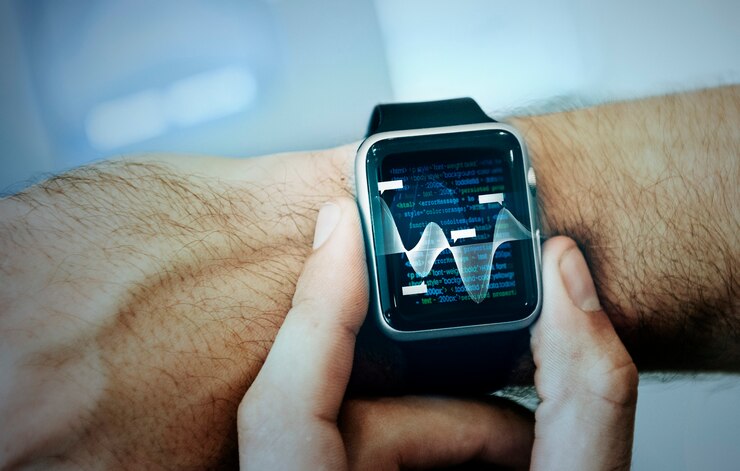Mental health problems are rife in modern-day households, affecting one in four Americans aged 18 years and older. Therapy, medication, and exercise have been the most common treatment methods for mental health problems.
Even so, they’re only effective when a mental health professional continually monitors the patient’s progress. This means mental health patients must regularly visit their caregivers for regular assessment.
However, the increasing shortage of mental health professionals could leave people living in rural areas without treatment. The emergence of wearable devices which can harness mental health monitoring for such individuals could help professionals to collect reliable data remotely and diagnose accurately.
The devices help mental health professionals answer questions regarding a patient’s real-time behavior in everyday surroundings, eliminating any personal bias that comes with self-diagnosis. We explain more about the contribution of wearable technology to mental health care and monitoring.
How Wearable Devices Monitor Mental Health
Wearable devices monitor changes in the brain and the body that indicate mental health symptoms, helping the patient find ways to manage them. In fact, a recent study published in PLoS Computational Biology found that advanced wearable devices can sense mental health distress signals within seconds and provide feedback and calming mechanisms.
The devices eliminate bias associated with self-reported data by providing continuous, real-time physical activity and mood measurements. When combined with self-report measures, the data can clarify self-reported data and provide context.
Parameters that Help Diagnose Mental Health Conditions
Wearable technologies monitor two parameters that can help diagnose one’s mental health condition:
- Mood
- The heart rate variability
Mood
Mood change is a common mental health symptom for problems like depression and anxiety. However, one’s mood is a subjective factor that can be challenging to diagnose or monitor accurately.
“When I kept silent, my bones grew old Through my groaning all the day long” (Psalm 32:3).
Passive sensing using wearables helps address this challenge. It captures different dimensions relating to human behavior for more accurate monitoring. The devices can monitor the patient’s skin, sweat gland activity, sleep patterns, activity level, and movement patterns, providing valuable insights into one’s mental health status.
Heart Rate Variability
Heart rate variability has a strong correlation to one’s mental health. The heart rate variability is the time variance between heartbeats, and helps analyze one’s overall well-being daily. Studies show that people with severe depression have a lower heart rate variability than healthy people.
Conversely, high HRV indicates that an individual is socially engaged, has a positive mood, and has emotions. Wearable devices help monitor this variance, allowing mental health care professionals to determine when a patient is likely to get into bouts of depression or the symptoms are improving.
Mental Health Conditions Monitored Using Wearable Devices
A review of 18 studies shows various wearables can detect a range of mental health conditions, including:
Depression
Wearables monitor parameters such as heart rate variability to provide valuable insights into a patient’s depressive symptoms. For example, people with a high rate of variability and physical activity have been found to have a lower rate of depression.
Stress
Stress is an underlying factor for mental health conditions like depression, making researchers interested in experimenting with wearables to measure stress levels in real-time.
So far, studies show that wearables measuring heart rates can also provide valuable information about everyday stress triggers in a natural setting. For example, wearable devices like Apple Watch, Fitbit, and Garmin can show one’s heart rate variance when stressed.
The Bottom Line
Wearables are an excellent remedy for mental health patients who want to be proactive at managing mental health conditions or living away from health facilities. They help monitor the conditions in real time and stop an oncoming reaction before it escalates. This proactive approach makes patients mindful of their health and possible triggers.








Your point of view caught my eye and was very interesting. Thanks. I have a question for you. https://accounts.binance.com/fr-AF/register?ref=JHQQKNKN